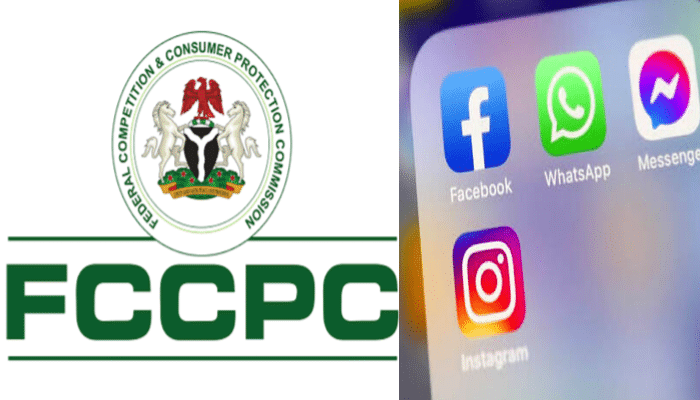The $220 million fine levied on Meta Platforms Inc. and its subsidiary, WhatsApp, for what authorities have characterized as discriminatory data practices that affect Nigerian users has been upheld by a Nigerian competition tribunal.
A three-member panel led by Thomas Okosun rendered the decision, which also ordered the social media behemoth to pay $35,000 to reimburse the Federal Competition and Consumer Protection Commission (FCCPC) for expenses paid during its inquiry. This was verified in a Nairametrics report.
The penalty was initially imposed in July 2024 as a result of a thorough investigation of how Meta handled user data from Nigerians.
The IT company was found guilty of a number of offenses, including “unauthorized transfer and sharing of Nigerian data,” “cross-border storage,” “abuse of dominance,” and “tying and bundling” services—actions deemed to be unjust and exploitative, according to the FCCPC.
The Commission also claimed that Meta’s actions led to systemic disparities in data governance, violating Nigerians’ constitutional rights to data privacy and self-determination.
Meta responded by launching a lawsuit on 22 different grounds. The business contended that the Commission’s instructions were unclear and difficult to carry out.
It further argued that the fine’s premise was not supported by Nigerian law and that the decision-making process lacked a fair hearing.
Professor Gbolahan Elias (SAN), Meta’s attorney, maintained that the orders were overly stringent. Because users have other options, like TikTok and Google Meet, “there is no abuse of dominance,” he said.
The tribunal, however, dismissed Meta’s claims, stating that although the business had been given an opportunity to defend itself, it had not produced any compelling evidence to refute the FCCPC’s conclusions.
the appellants were given ample opportunity to be heard,” declared Okosun, dismissing claims of procedural unfairness.
On the issue of foreign legal influence, Elias had challenged the relevance of referencing international standards, arguing that such frameworks do not automatically apply to Nigeria. But former FCCPC executive vice chairman, Babatunde Irukera (SAN), defended the Commission’s stance.
“While foreign rulings are not binding, they are persuasive and relevant in similar legal contexts,” he argued, adding that the fine was not designed to punish Meta but to correct harmful practices and protect Nigerian users’ right to consent.
The tribunal concluded that the FCCPC had acted within its mandate. It found that Meta’s transfer of personal data without clear consent was a direct breach of Nigeria’s data protection laws.
“The tribunal finds no error in the overall orders of the FCCPC,” the panel held. “The administrative penalties were lawfully imposed.”
Beyond upholding the monetary penalty, the tribunal imposed strict compliance orders on Meta. The company must immediately reinstate Nigerian users’ rights to determine how their data is shared.
It is also required to return to its 2016 data-sharing policy, submit a revised data use proposal to both the FCCPC and the Nigeria Data Protection Commission (NDPC) within 10 days, and publish the policy publicly.
In addition, Meta has been ordered to halt any linking of WhatsApp data with Facebook or third parties unless users provide informed and explicit consent. A formal compliance report is expected by July 1, 2025.





